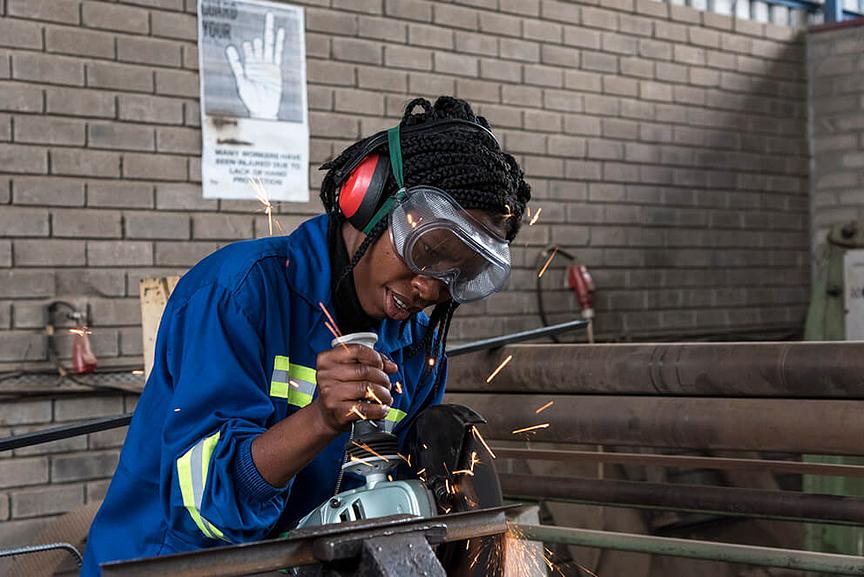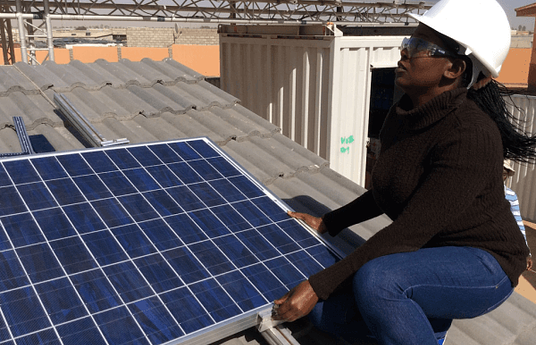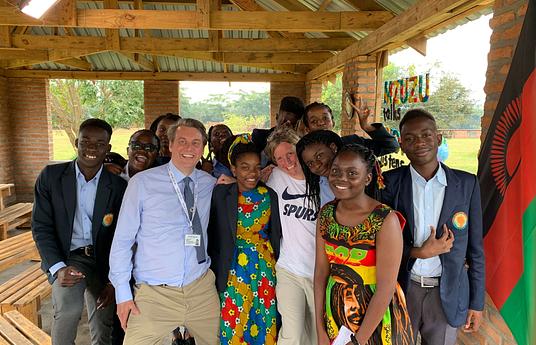Young Africa offers holistic skills training for employability and entrepreneurship to socially, educationally and economically disadvantaged young people (with a special focus on young women and youths with disabilities) aged 15-25 in Zimbabwe, Mozambique, Namibia, Botswana and Zambia. The mission of Young Africa is the integral development of underprivileged youth for (self-)employment: integral development is achieved through a multi-faceted approach towards skills training. Young Africa’s integral youth empowerment programme is made up of vocational skills training in market related technical and commercial trades, entrepreneurship training, life skills education and talent development.
Young Africa’s theory of change is hinged on the following:
1. A belief that if the abundant potential of youths is harnessed they can become change makers in their local communities and the world.
2. A conviction that young people have a longing to belong to a force or a cause and have a deep need for information and knowledge.
3. A recognition that for a young person to reach their potential all aspects of their personality need to be nurtured. This is why Young Africa programmes are designed to empower young people with skills of the hands, heart and soul.
4. A commitment that Young Africa training centres, which are local organisations run by local management, must take responsibility to be financially self-sustainable social enterprises.
This high impact intervention is delivered by local management teams through Young Africa’s unique and internationally recognised franchise business model. So far, 35,000 young people have been trained at Young Africa centres and this number will grow exponentially as Young Africa begins to focus its work on disseminating and scaling the Young Africa model.
YA’s work is unique. It consists of responses to the multi-dimensional challenges faced by African youths. YA’s empowerment programme, consists of three key interventions:
1. The short-term TVET courses equip young people with skills for employability and entrepreneurship. Training is delivered through an innovative franchise business model.
2. Small Enterprise Development facilitates YA’s graduates’ smooth passage into entrepreneurship. This component consists of two interventions: (i) compulsory International Labour Organisation entrepreneurship training and (ii) facilitating graduates’ access to start-up loans/kits.
3. Life Skills Education, developed by Dorien Beurskens aims to empower young people with soft skills that make them confident, responsible, purposeful citizens. Topics covered include personal development, gender and environmental awareness.
Young Africa’s franchise business model is a unique and cost-effective training delivery method. Young Africa partners with local entrepreneurs (franchisees). YA, with donor aid, invests in the capital equipment for production/training units which are franchised to local entrepreneurs who run it as his/her income-generating business. The franchisee (i) pays rent to Young Africa for the facilities, (ii) shares the centres operational costs and (iii) trains young people on-the-job in a trade.



